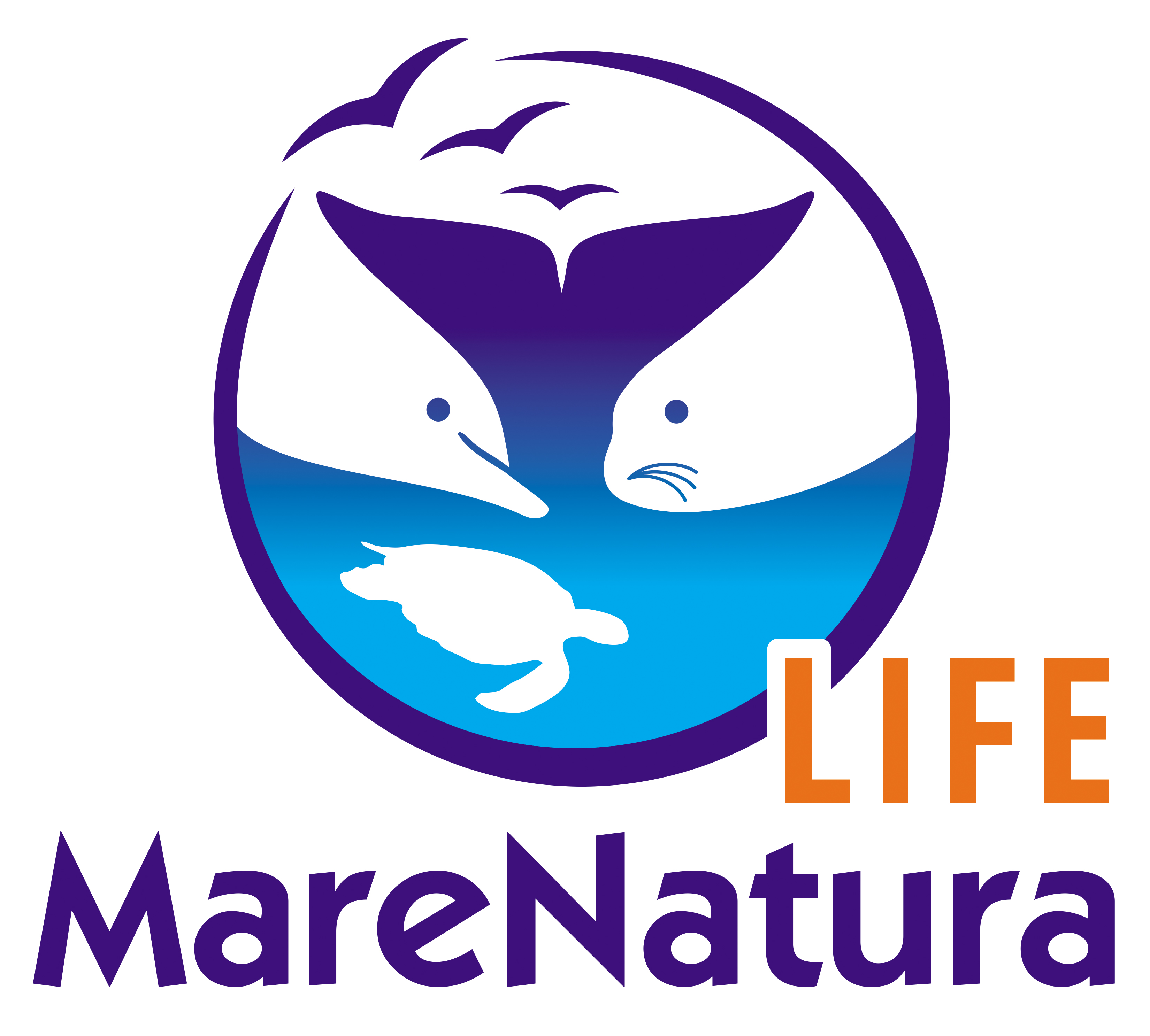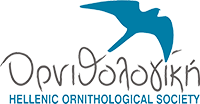HOS/BirdLife Greece is partner of LIFE MareNatura, the largest marine biodiversity project implemented in Greece
With the aim to mitigate the threats that affect nine priority and vulnerable species of the Mediterranean biodiversity (the Mediterranean Monk Seal, the Loggerhead Turtle, the Green Turtle, the Sperm Whale, the Harbour Porpoise, the Cuvier's Beaked Whale, the Common Dolphin, the Yelkouan Shearwater and the Audouin’s Gull), the environmental project LIFE MareNatura - , launched its activities in July 2023 and is expected to conclude in June 2029. The project’s ultimate objective is the effective protection of the vulnerable species and their marine habitats, through the identification and designation of new marine protected areas (MPAs), thus enlarging the Natura 2000 network in Greece.
In this way, the programme will make a key contribution to Greece's implementation of the European Union's biodiversity strategy, which calls for at least 30% of Europe's marine and terrestrial areas to be protected by 2030 (“30 by 30 target”). Such a perspective is fully in line with the objectives of the 9th OUR OCEAN CONFERENCE, hosted in Greece in April 2024.The LIFE MareNatura project, with a total budget of 11 million euros, is co-funded (75%) by the EU and will study an extensive marine area, ranging from the Aegean to the Ionian and the South Adriatic Sea, thus being the largest European project for the protection of marine biodiversity that has ever been implemented in Greece.
The project is being implemented by a large consortium of partners (academic and research institutions, NGOs, public bodies and environmental consultants), under the coordination of HCMR. It is worth mentioning that the Natural Environment & Climate Change Agency (NECCA), responsible authority for the Greek network of Protected Areas, is also among the project partners. The following organisations are also part of the consortium: The University of the Aegean, the University of Crete - Natural History Museum of Crete, the National Observatory of Athens, the Italian Institute for Environmental Protection and Research (ISPRA), the NGOs Hellenic Ornithological Society, Hellenic Society for the Study and Protection of the Monk Seal, ARCHELON - The Sea Turtle Protection Society of Greece and the Mediterranean Association to Save the Sea Turtles (MEDASSET), and the private companies Nature Conservation Consultants-NCC and WaterProof Marine Consultancies and Services BV. The environmental think tank The Green Tank is the project's policy specialist advisor.
Initially, the project will fill important knowledge and ecological information gaps, especially in offshore areas that are understudied and used for feeding, breeding or as migratory corridors by target species. To this end, modern biomonitoring techniques such as telemetry (using satellite transmitters mounted on the animals), visual recordings from floating and aerial means, hydrophone recordings for sonar tracking of whales and dolphins, and species tracking through environmental DNA will be used to identify the most
important areas for these species. Moreover, economic activities that may have negative impacts on the target species such as commercial fishing, energy production and transportation, tourism development and maritime traffic will be mapped throughout the study area. The aforementioned research data will be combined with the impact of climate change and by implementing advanced spatial planning methods, new marine protected areas (MPAs) will be identified and proposed to be officially included in the Natura 2000 network, expanding the current network and realizing EU Biodiversity Strategy.
In addition, the LIFE MareNatura project will develop a system for integrated monitoring of marine protected areas and target species after the end of the project, including early warning tools for regular assessment of their conservation status so that immediate protection measures can be taken when needed.
At the same time, through advocacy activities, the competent authorities will be informed and engaged into the project’s objectives. Lobbying Greek and EU decision makers, the project aims not only to officially establish the new marine protected areas, but also to secure sufficient resources for their effective management. In addition, through targeted awareness raising activities, the project intends to engage the public, as well as specific stakeholders, in marine biodiversity conservation.
At the same time, policy actions will be taken to ensure optimal information sharing and effective interaction with the competent authorities, stakeholders and interested parties. Through a set of lobbying actions with Greek and European decision-makers, the programme will aim not only to establish new marine protected areas, but also to ensure adequate resources for their effective management. Furthermore, through information and awareness-raising actions, the programme aims to engage the public, as well as specific target groups, to protect marine biodiversity.
The project coordinator and Researcher at HCMR, Dr. Panagiotis Kasapidis stated: “In times of enormous environmental challenges and an increasing expansion of economic activities (offshore wind farms, hydrocarbon and mineral extractions, tourism) in relatively intact marine areas, the LIFE MareNatura project aspires to offer an example of proper spatial planning, to protect the marine environment, based on robust scientific data, which will lead to an economic growth that respects the environment."




